Cast iron cookware is an essential tool for camping, known for its durability, heat retention, and versatility. It evenly distributes heat, making it ideal for cooking over campfires, whether you’re frying, baking, or simmering. Popular items like Dutch ovens, skillets, and griddles are perfect for preparing a variety of meals. Seasoning your cast iron is key to maintaining its non-stick properties and preventing rust, achieved by coating it with oil and heating it. Cleaning is simple—just use water, no soap, and dry it thoroughly. While heavy for backpacking, cast iron is unbeatable for car camping, offering long-lasting performance for hearty, flavorful outdoor meals.
Table of Contents
- 1. Why Cast Iron is Ideal for Camping?
- 2. Common Cast Iron Cookware for Camping:
- 3. Seasoning Cast Iron Cookware
- 4. Cooking Tips for Cast Iron over a Campfire
- 5. Cleaning and Storing Cast Iron While Camping
- 6. Cast Iron for Backpacking
- 7. Cast Iron Camping Meals
- 8. Pros and Cons of Cast Iron for Camping
- 9. Conclusion:
Why Cast Iron is Ideal for Camping?
Cast iron cookware is a favorite among campers for several reasons:
- Durability: Cast iron is incredibly tough and can withstand the rigors of outdoor use. It’s highly resistant to scratches, dings, and warping, even when exposed to open flames and high temperatures.
- Even Heat Distribution: One of the main benefits of cast iron is its ability to distribute heat evenly across the cooking surface. This makes it perfect for slow-cooking meals over a campfire, where heat may be uneven.
- Versatility: With cast iron, you can fry, bake, sauté, simmer, and roast. Whether you're making a hearty stew, baking bread, or frying up breakfast, one cast iron pot can do it all.
- Retention of Heat: Cast iron retains heat for a long time, which is helpful when cooking outdoors, allowing for steady heat even after the fire has died down.
- Non-stick Properties (When Seasoned): Properly seasoned cast iron becomes naturally non-stick, which is perfect for cooking outdoors without relying on chemical coatings that can wear off.
Common Cast Iron Cookware for Camping:
Here are the most popular cast iron pieces you'll find in a camping setup:
- Dutch Oven: A heavy pot with a tight-fitting lid, great for stews, casseroles, and baking bread. It’s perfect for cooking meals that require slow cooking.
- Skillet: Ideal for frying, searing, and sautéing. A well-seasoned cast iron skillet can cook anything from pancakes to steaks with ease.
- Grill Grates: Cast iron grates or grills provide a sturdy, even cooking surface over an open fire, making it perfect for grilling meat, vegetables, or even sandwiches.
- Griddle: A cast iron griddle offers a flat surface that’s excellent for pancakes, bacon, and eggs.
- Pie Irons: These are smaller cast iron tools used to make sandwiches, pies, or toast over an open fire.
Seasoning Cast Iron Cookware
To keep your cast iron cookware in top shape, seasoning is essential. Here's how to do it:
- Clean the Cookware: After using your cast iron, wash it with warm water and a brush (no soap). Dry it completely, as moisture can lead to rust.
- Apply Oil: Coat the surface with a thin layer of cooking oil, like vegetable oil or flaxseed oil.
- Bake the Cookware: Place the cast iron upside down in an oven (or over the campfire) at around 375°F (190°C) for an hour. This process allows the oil to bond with the iron, creating a protective, non-stick layer.
Regular seasoning maintains the non-stick surface and helps prevent rusting.
Cooking Tips for Cast Iron over a Campfire
- Preheat Before Cooking: Always preheat your cast iron cookware before adding food. This prevents sticking and ensures even cooking.
- Use Medium Heat: Cast iron retains heat well, so using medium heat is often enough for most cooking. Avoid too much direct high heat as it can cause burning.
- Add Oil or Fat: To help with the non-stick properties, use a small amount of oil or butter when cooking, especially if you are using cookware that hasn’t been seasoned recently.
- Cover with Lid: If using a Dutch oven, always cover it with the lid to trap heat, moisture, and flavors, especially when simmering or baking.
Cleaning and Storing Cast Iron While Camping
Cleaning cast iron while camping can be simple if done correctly:
- Avoid Soap: Use only hot water and a stiff brush to clean the cookware. If food sticks, boil some water in the pot to loosen the residue.
- Dry Thoroughly: Wipe your cookware completely dry after cleaning. Moisture is cast iron’s worst enemy in terms of rust.
- Re-season: After drying, rub a thin layer of oil on the surface to keep the cookware seasoned and prevent rust.
- Store Safely: Store your cast iron in a dry, clean place. If camping in humid environments, place paper towels between the lid and pot to absorb moisture and avoid rust.
Cast Iron for Backpacking
While cast iron is a top choice for car camping or longer trips where weight isn’t an issue, it may not be suitable for backpacking due to its heft. However, for those who don't mind the weight or for short treks, a small cast iron skillet can be a great addition.
Cast Iron Camping Meals
Here are a few popular cast iron recipes that work well for camping:
- Campfire Chili: Cooked low and slow in a Dutch oven, chili is a hearty meal that can easily feed a group.
- Skillet Breakfast: Fry up eggs, bacon, and pancakes in a cast iron skillet for a perfect camping breakfast.
- Dutch Oven Pizza: Yes, you can make pizza while camping! Stretch the dough inside a Dutch oven, add toppings, cover, and cook until crispy.
- Campfire Bread: With a Dutch oven, you can bake a loaf of bread right at your campsite.
Pros and Cons of Cast Iron for Camping
Pros:
- Durable and long-lasting
- Great heat retention and even cooking
- Versatile – can handle a variety of cooking techniques
- Naturally non-stick (when properly seasoned)
Cons:
- Heavy and bulky (not ideal for backpacking)
- Requires maintenance (seasoning and proper storage)
- Can rust if not dried and stored correctly
Conclusion:
Cast iron cookware is a valuable tool for any camping trip, especially if you're cooking for a group and don’t mind the weight. Its durability, versatility, and excellent cooking performance make it worth the effort of carrying and maintaining. Just remember to season your cookware regularly and store it properly to ensure it serves you well on every camping adventure.

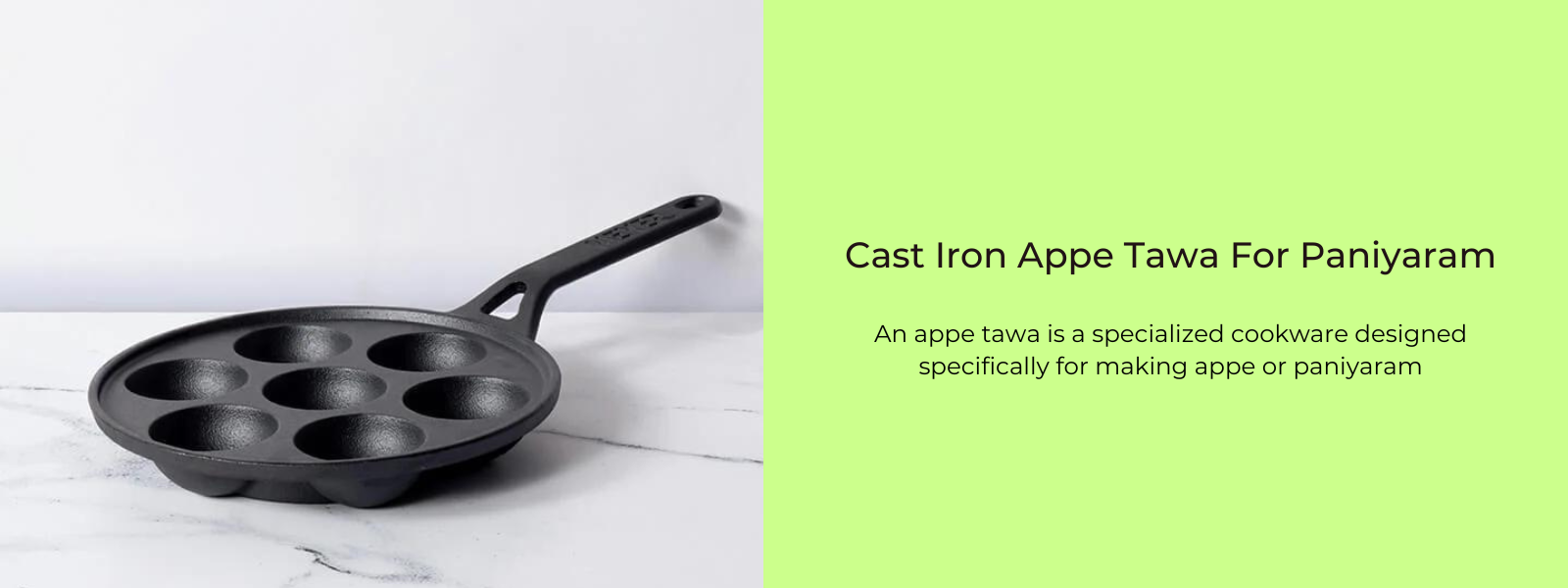
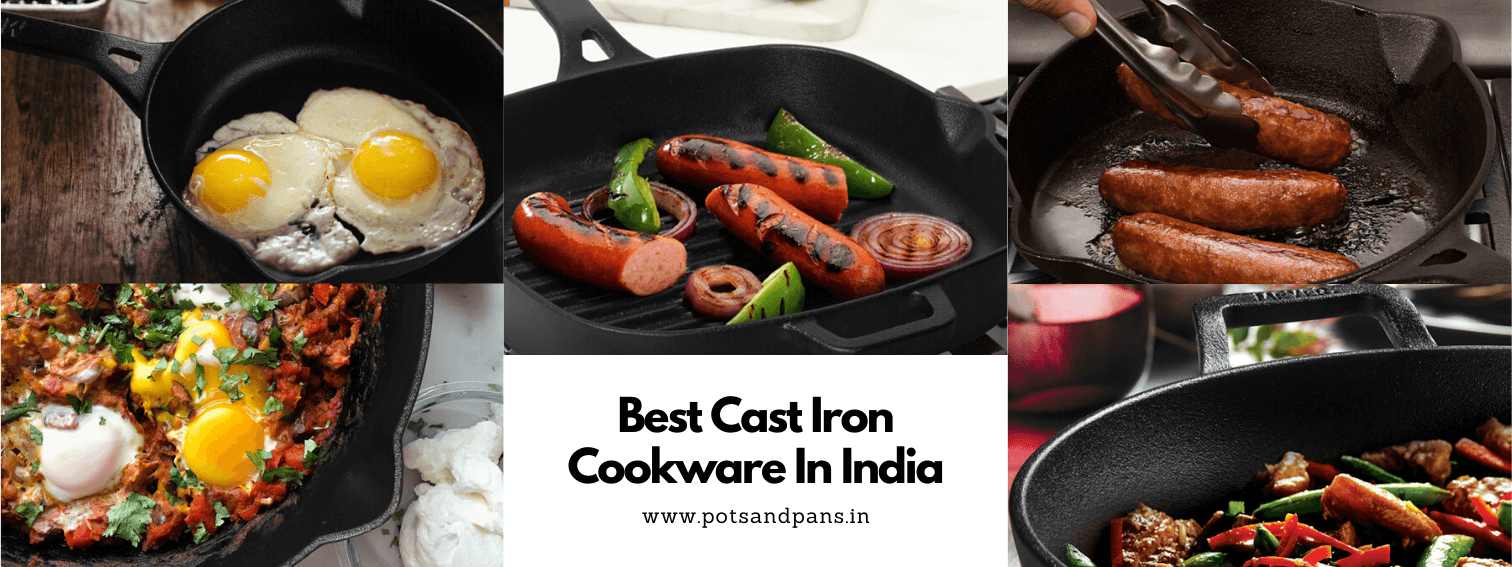
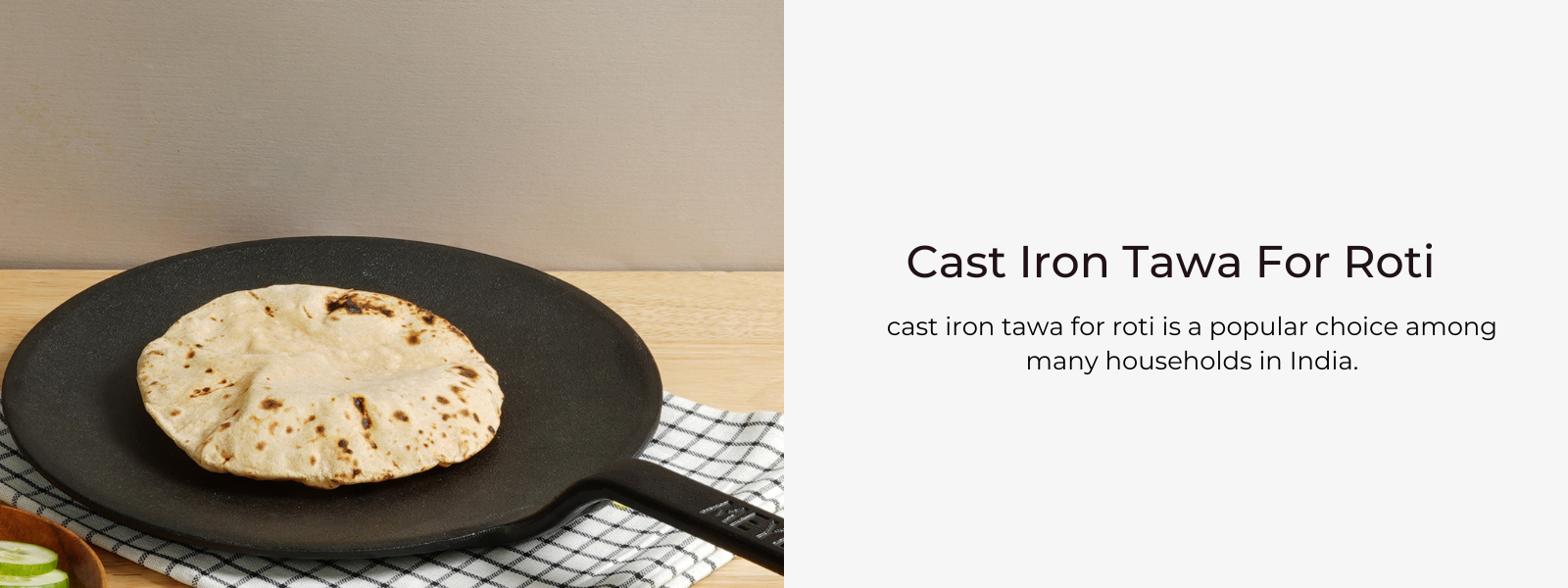
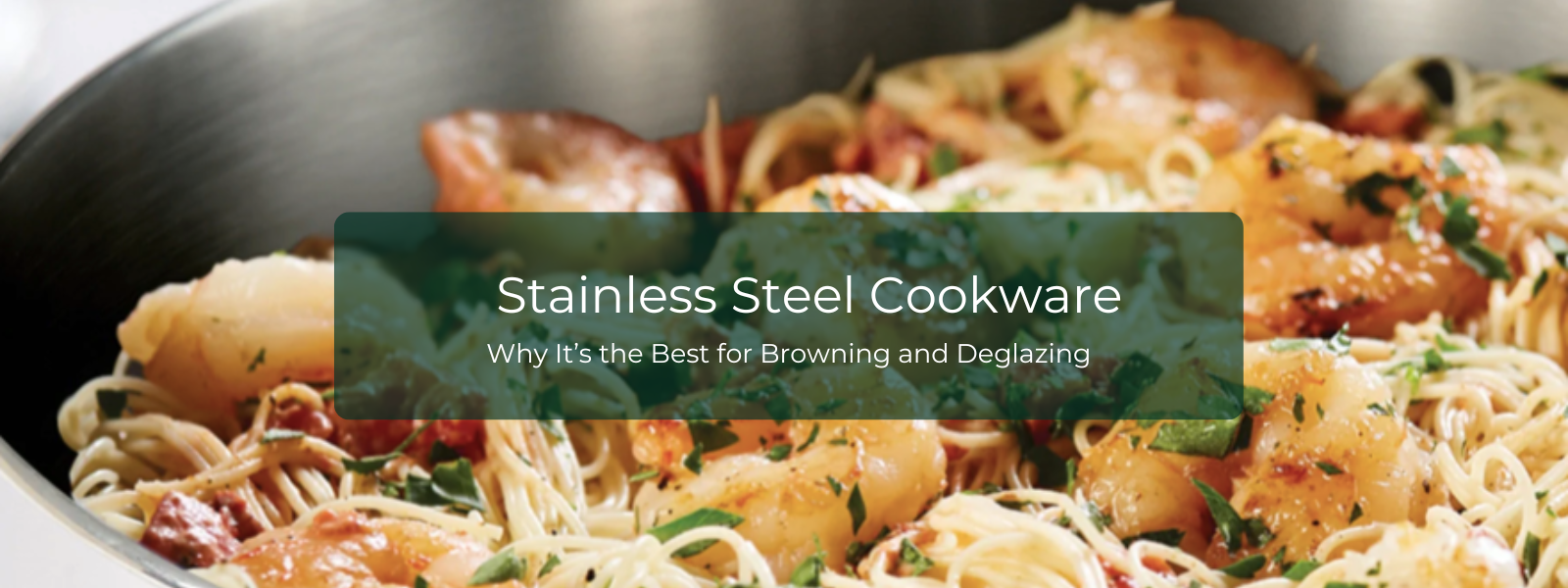
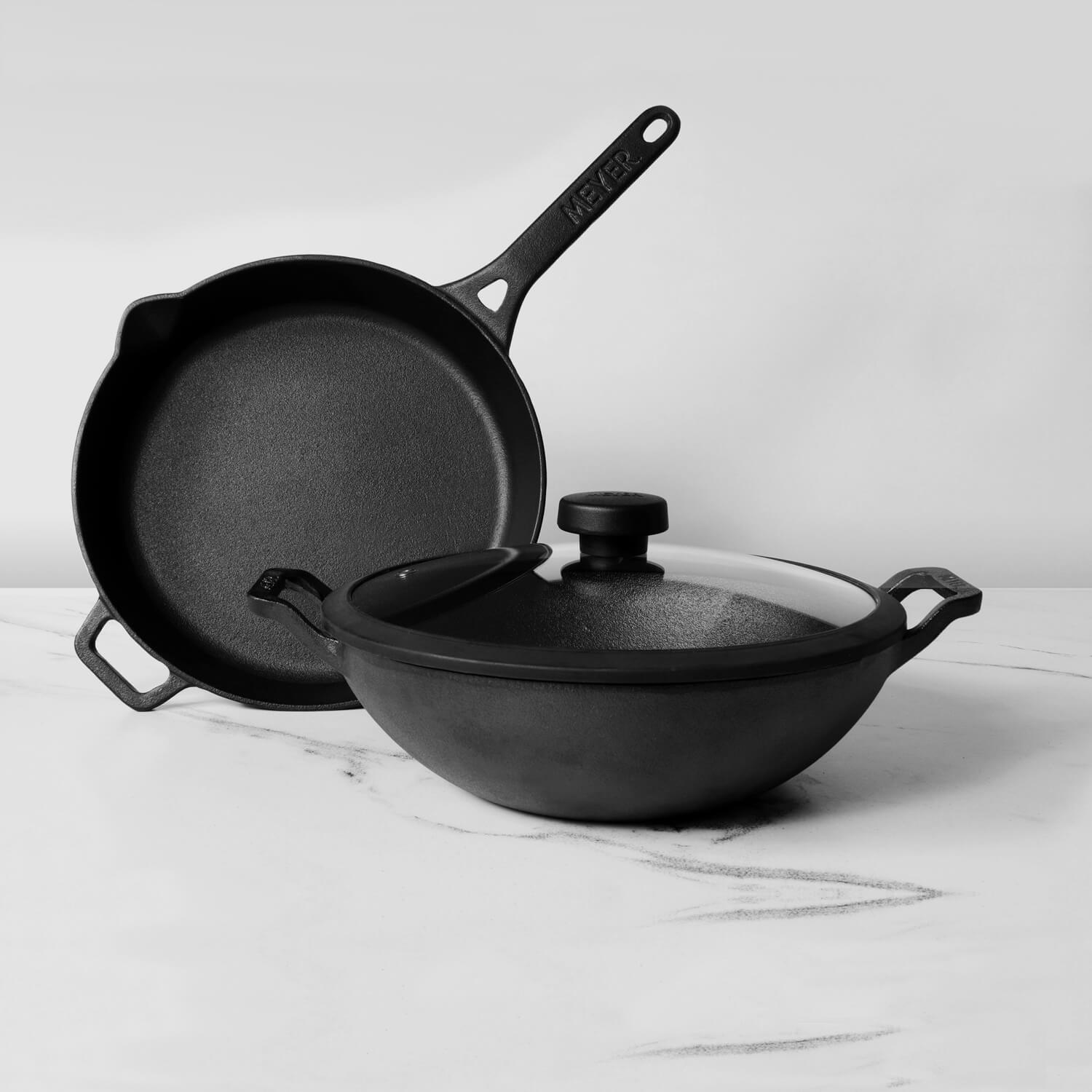
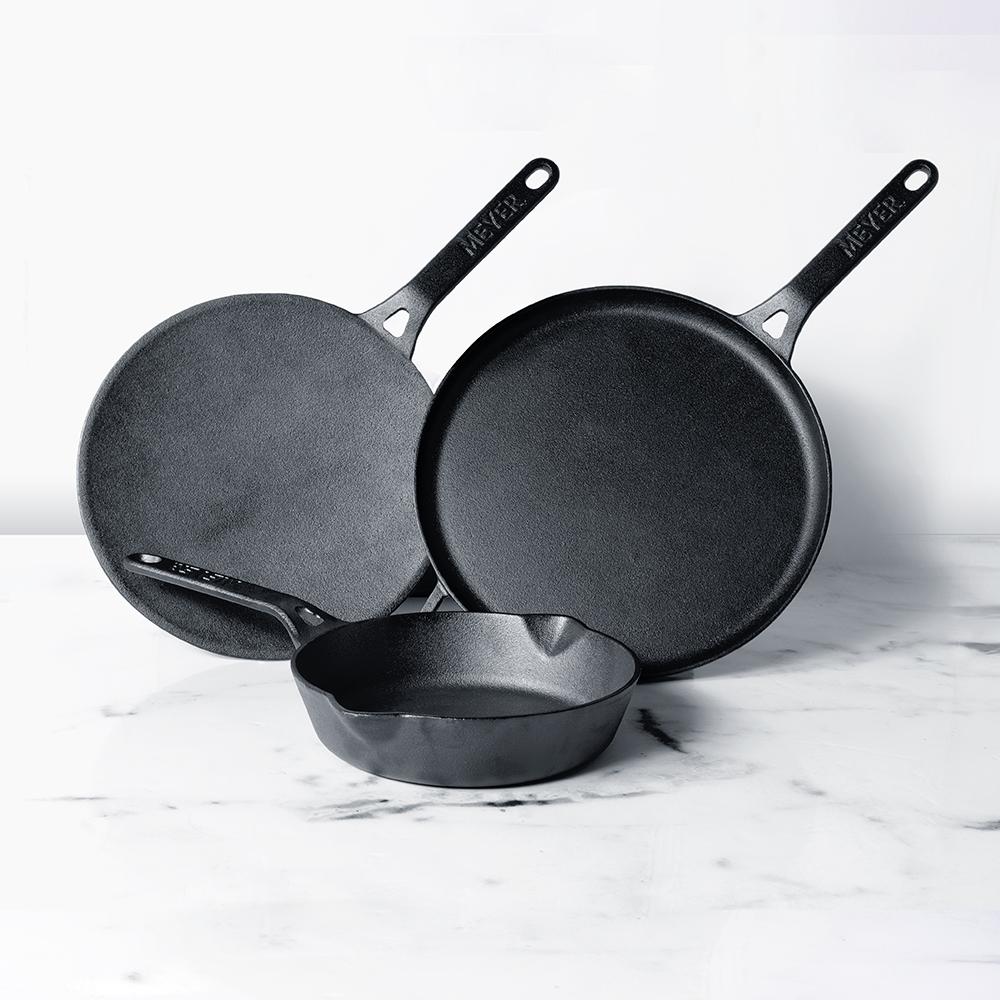




Leave a comment